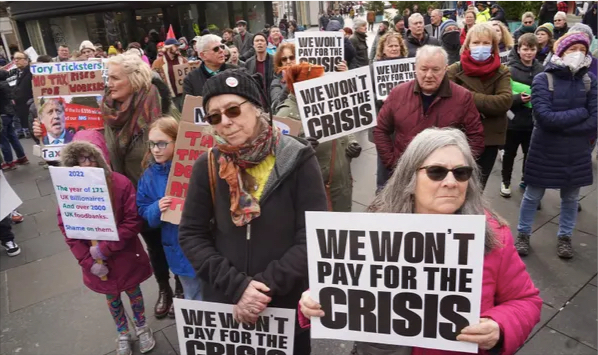
STRATEGIC ASSESSMENT. The gap in the inflation rates experienced by the richest and poorest households in the UK is at its highest level for 16 years – another sign that the cost of living crisis is most severe for those least able to cope.
With Boris Johnson and chancellor Rishi Sunak now facing daily pleas from business figures and their own MPs to take emergency action to help relieve soaring costs, it emerged that the inflation rate for the poorest 10th of households is 1.5 percentage points higher than for the richest 10th. This is the largest gap recorded since 2006.
The finding, revealed by the Resolution Foundation thinktank, comes soon after official inflation figures showed inflation soaring to 9% in April, its highest level for 40 years. Food prices and household energy bills have fuelled the crisis, and ministers believe it is likely to intensify in the months ahead.
The Treasury is preparing to take action but is desperate to focus its efforts on the poorest households amid continuing anxieties about costs and the risks of pushing inflation even higher. However, it is facing opposition within No 10 over a windfall tax on energy companies to help fund bill reductions.
Yesterday former Tory leader Iain Duncan Smith called for benefits to be immediately increased in line with inflation to provide a “shield” for the poorest. He said that using rebates and special funds to deal with the issue was “a step in the wrong direction for tackling poverty”.
Last week, former Tory chancellor Norman Lamont joined other senior figures in urging wider action when he called for an increase in universal credit and a widening of the existing warm home discount – an idea that is being explored by Sunak. The scheme currently gives 3m households in England and Wales £150 off their bills.





